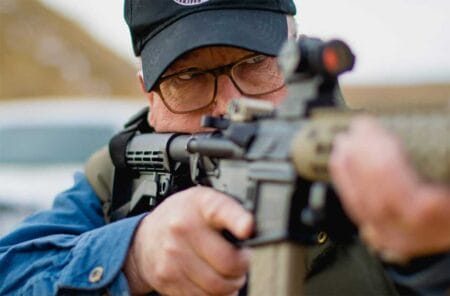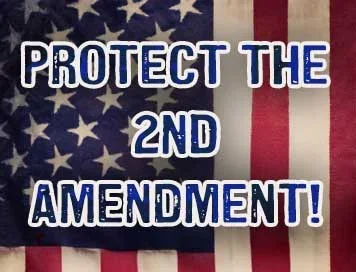Chris Andersen, 3-Gun Nation Pro Shooter


Honeoye Falls, NY -(Ammoland.com)- :When getting better means spending less time on the range:
Ammunition has been hard to come by for quite some time now. So many shooters, especially those just starting out in competition are likely becoming very familiar with what it means to ration what they are able to find. Possibly having to skip that match you really wanted to shoot, simply because you don’t have the ammo for it. In fact, I will have an article on 3GunNation.com this month about ways to improve by using less live ammo. Taking time off from a sport you love can be frustrating. But something you may not realize is that there can actually be some positive reasons to step away and take time off from practice and competing if you are serious about improving.
The dangers of shooting too much
I live in Oklahoma, and this part of the country offers a tremendous number of opportunities for competitive shooting. If you so desire, you can shoot as many as two, or even three different matches every single weekend without driving more than 2 hours. Because I am fortunate enough to have an understanding wife, and a very flexible schedule there have been many times when I have done my best to shoot as many of these matches as possible.
I attribute a lot of my jumps in ability to having access to this quantity of matches. But the interesting thing is that I can also attribute setbacks in my training to the exact same group of opportunities. That has made me aware that stopping to take a break can be just as important to improving your match performances as shooting matches and practice time spent on the range can be. Here are a few things to watch out for in your shooting season:
Learn to recognize and avoid fatigue
The biggest danger of too much time spent at the range is fatigue. We are competing in a very focus-driven sport, and fatigue is the quickest way to lose sight of that focus. Whether you are driving across town to compete in a match after a long week at work, or traveling to back-to-back major matches halfway across the country from each other, fatigue is the enemy of performance.
Be honest with yourself about how you are feeling. You know when you are sharp and when you are not. It is very difficult to string multiple matches together over a short period of time and expect to maintain a high level of competitiveness. Sometimes improving means actually shooting fewer matches, and spending a little less time at the range.
My routine after returning from a major match always involves at least a day or two of rest prior to resuming regular practice sessions. And I do my best to never schedule major matches less than two weeks apart to ensure proper recovery time. Getting your mind and body right before returning to your practices or competition routine is very important.
Regular checkups keep you improving
Performance checkups are also extremely important to insuring progress. Shooting match after match without reflecting on mistakes made and taking time to train them out on the practice range can ingrain bad habits deeper and deeper into your routines. And the deeper you ingrain these habits, the more difficult it can become to undo them.
Take, for example, a person who has played golf his entire life with a horrible slice. This person has spent years and years reinforcing a bad habit, and forcing himself to work around it, always struggling through his game. He was at a crossroads at one point though, where honest reflection would have led him to a couple of days spent on the driving range with proper instruction that very likely would have had him hitting it straight down the fairway. Something tells me this person would have enjoyed a lifetime of golf a lot more had he taken the time to make that correction.
Bad performances offer an opportunity to improve if you let yourself be open to constructive criticism. Take a step back and ask yourself what happened when you had a bad match. Critique yourself honestly.
These are the most important times in your competitive shooting career. Making the right move after a big mistake can be the difference between improving, stalling at a certain ability level, or even getting worse. Sometimes that will mean developing a slightly different practice routine to iron out problems. Other times it will mean simply taking a break to rest and recover. Either way you have to allow yourself time to take a step back and periodically look at the big picture.
Stop Plinking
No more messing around, mindlessly sending rounds down-range. If you are serious about your performance, take your practice sessions seriously. The more serious you are about wanting to improve, the more important time spent at the range becomes. I am not saying you shouldn’t have fun. But as I have said many times before, you should come to the practice range with a plan and make every shot count. That means, simply, shooting less.
Always finish your practice sessions with either some type of precision shooting or a drill that forces you to stay visually locked in on your sights, make sure you are happy with your performance and leave on a good note.
Less is always going to be more in practice. And allotting a very specific round-count to your practice sessions adds match-type pressure which helps train you to focus.
Keep things simple
Taking breaks also means less tinkering with your equipment. If you find gear that works for you, avoid wasting tons of time chasing after the latest and greatest hot-rod accessory, especially during the season. Take the time instead to master the gear you already have, especially if it is not handicapping you in some obvious way.
Settling in on your equipment gives you an opportunity to spend more time on your most important piece of equipment: you. While it is very tempting to always be looking for the latest and greatest gadget to add to your kit, you will find that it can be a very vicious cycle. Constantly chasing finite amounts of time by making big changes in your gear can be exhausting, and that can also result in your match finishes slipping. Regular changes to firearms will inevitably result in a lack of reliability due to unproven equipment.
Practice vs. Competition
It is important to recognize that a practice session may be better for you than shooting a local match. Competition, on the clock in preparation for a major match should always have a place in your training. There is no better place to work on things like stage planning and execution, as well as get a benchmark against other shooters.
But it is also important to remember the one aspect of a practice session that can be more valuable: you are in control of a practice session. You set the pace, and control the content of your time at the range. There are going to be times when a simple hour-long practice session working on a particular skill is going to be more valuable to you than a whole day spent shooting a local match.
Being rested allows you to peak at the right times
Setting performance goals is very important. It is impossible to be at one hundred percent, one hundred percent of the time. Elite athletes gear their training schedules around specific competitions to insure they are performing at their best at the right times. You should apply the same methodology to your shooting.
Whether you are planning to shoot several major matches in a year or just have a regional match you would like to perform well at, set a practice schedule that allows you to have a good balance of training, equipment setup, and rest.
Sometimes peaking at the right times means occasionally putting your toys away for rest and reflection to make sure you are as sharp as possible when that big match rolls around.
Chris Andersen is a 3 Gun Nation Pro Shooter for Team Vertx and regular contributor to AR15.com and 3GunNation.com. Look for his articles and videos every month in the ARFCOM Newsletter to help improve your performance in 3 gun competition.
About:
AR15.Com originated in 1996 as a mailing list for firearm enthusiasts. As the years passed and interest grew, a website came into existence to present those same enthusiasts with a means to collect, share, and explore information. Shortly afterwards, a bulletin board was added to create a more interactive experience for the growing list of users. The site was still in it’s infancy, but was growing in popularity. Visit: www.ar15.com





something is wrong when the industry can’t catch up the supply of ammunition in an antire year.